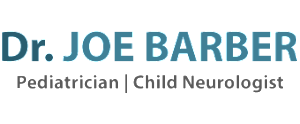Diagnostic Criteria
The core diagnostic criteria for the diagnosis of autism spectrum disorders
(ASDs) are best described by a triad of impairments. These impairments concern
social development, language and communication and thought and behavior. As more
is learned about ASDs our understanding improves. The research being performed
daily not only helps us to determine the best intervention but also allows us to
understand how to categorize the many types of ASDs and in so doing allow you as
parent to receive the best advice possible.
An awareness of the above impairments must be linked to appropriate screening and surveillance by your pediatrician. Early detection and diagnosis are vital for short and long term success. This is accomplished through a collaboration between all involved in
the care of your child. This health partnership is the key to early recognition
of deficits in the above areas.
Children with social impairments have atypical patterns of social development. This is especially seen in the areas of interpersonal recognition and interaction. Language and communication deficits may be verbal or non-verbal and may involve higher level pragmatic language skills. Thought and behavior deficits revolve about a lack of age appropriate social awareness and imagination. In its place other patterns of play are
substituted including highly ritualized or repetitive patterns.
Common communication impairments include abnormalities of language development
including a lack of speech, inappropriate prosody or musicality of speech,
echolalia, inappropriate pronoun use, atypical vocabulary use or a preference to
discuss certain topics excessively. Social Impairments include an inability to
participate in age appropriate play, a lack of awareness or recognition of age
appropriate norms, a lack of recognition for criticism or the intent purpose or
meaning of the comments of others, a tendency to be overwhelmed in social
situations, a lack of age appropriate adult interactions and a tendency to show
extreme behavioral responses when confronted with an uncontrolled or unexpected
social situation. Impairments of interests, behaviors and activities include a
rigidity of action and a lack of flexibility where certain behaviors or actions
must be performed in a certain way, primary deficits in organizational and
executive function skills and a general lack of performance of age appropriate
activities when forced to cope with change or unstructured situations.
